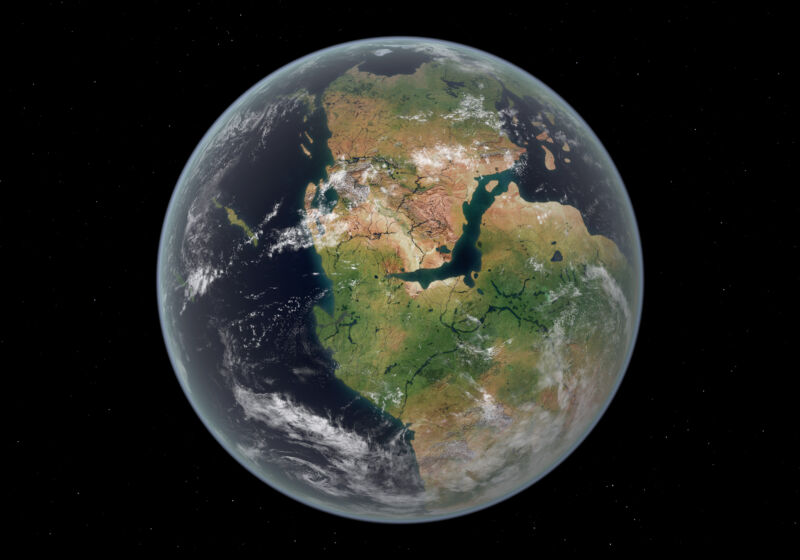New study takes the Earth’s temperature over a half-billion years

Enlarge / The cycle of building and breaking up of supercontinents seems to drive long-term climate trends. (credit: Walter Myers/Stocktrek Images)
Global temperature records go back less than two centuries. But that doesn’t mean we have no idea what the world was doing before we started building thermometers. There are various things—tree rings, isotope ratios, and more—that register temperatures in the past. Using these temperature proxies, we’ve managed to reconstruct thousands of years of our planet’s climate.
But going back further is difficult. Fewer proxies get preserved over longer times, and samples get rarer. By the time we go back past a million years, it’s difficult to find enough proxies from around the globe and the same time period to reconstruct a global temperature. There are a few exceptions, like the Paleocene-Eocene Thermal Maximum (PETM), a burst of sudden warming about 55 million years ago, but few events that old are nearly as well understood.
Now, researchers have used a combination of proxy records and climate models to reconstruct the Earth’s climate for the last half-billion years, providing a global record of temperatures stretching all the way back to near the Cambrian explosion of complex life. The record shows that, with one apparent exception, carbon dioxide and global temperatures have been tightly linked. Which is somewhat surprising, given the other changes the Earth has experienced over this time.


